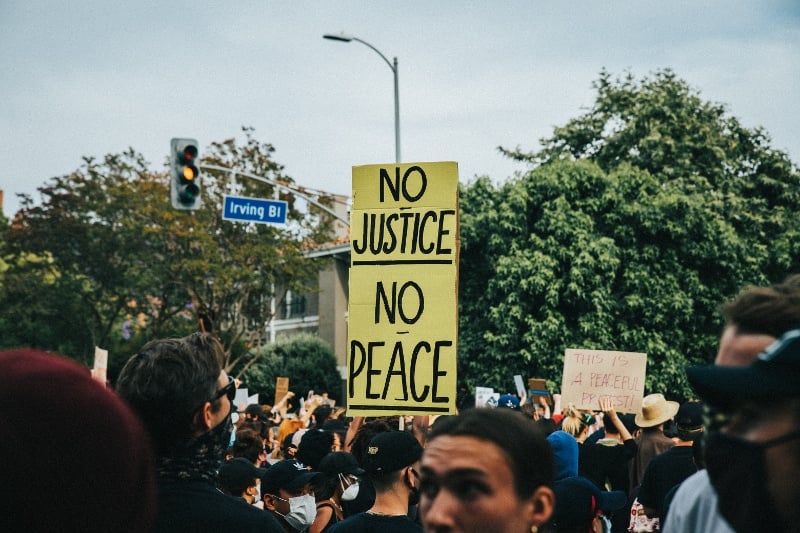Social Justice Issues
Social justice issues can occur in relation to practically any aspect of society where inequality can arise as a result of unjust prejudices or policies.

Types of Social Justice Issues
Social justice issues can be delineated into two categories, which are interrelated and often co-dependent: Inter-Social Treatment and Unequal Government Regulation.
Inter-Social Treatment involves treatment of certain groups of people based on personally-held biases and prejudices. These prejudices most often manifest in relation to social identity categories such as:
- Race
- Gender
- Age
- Sexual Orientation
- Religion
- Nationality
- Education
- Mental or Physical Ability
Unequal Government Regulation involves laws and regulations that purposefully or otherwise create conditions that obstruct, limit, or deny certain groups equitable access to the same opportunities and resources available to the rest of society. These laws can intentionally (explicitly) or unintentionally (implicitly) create the conditions for social injustice. Areas in which government policy often gives rise to social inequality and injustice include:
- Voting Laws (i.e. redistricting and voter ID)
- Policing Laws (i.e. search and seizure and drug scheduling)
- Environmental Laws (i.e. clean water and air, industrial waste disposal)
- Health Care Laws (i.e. insurance mandates and coverage eligibility)
- Education Laws (i.e. public school segregation and integration)
- Labor Laws (i.e. worker’s rights, occupational health and safety)
See Social Inequality for further characterization of these two categories.
